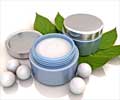Next time you reach for a cosmetic that contains tea tree oil, give a second thought. You may unwittingly be giving a boost to ‘bad’ microorganisms.
Next time you reach for a cosmetic that contains tea tree oil, give a second thought. You may unwittingly be giving a boost to ‘bad’ microorganisms- to evolve into stronger, tougher ones.
So says a research published in the Journal of Antimicrobial Chemotherapy and led by professor David McDowell of the University of Ulster.Accordingly, the scientists who grew bacteria such MRSA, E.coli and salmonella in low dose concentrations of tea tree oil found that they became more resistant to antibiotics and also capable of causing worse infections.
Tea tree oil, taken from the leaves of the Melaleuca alternifolia, native to Australia, is commonly used in many products including shampoos, body lotions and toiletries.
It is well known for its anti-bacterial and anti-microbial properties.
However, there is no legislation-requiring manufacturer to state the concentration of the oil in any of the products.
According to the researchers, low dose tea tree oil found in beauty products, which is not strong enough to kill the microbes, actually turns on their defense system, resulting in tougher ones of them or ‘superbugs’.
Advertisement
In other words, if a person uses tea tree oil products on their skin repeatedly, any MRSA on their skin could develop increased resistance to the antibiotics, which are used to control MRSA infections.
Advertisement
The latest figures from Health Protection Scotland (HPS) show the number of MRSA cases has fluctuated from a low of 176 in July-September 2003 to a high of 274 in January-March last year.
Figures compiled by the European Antimicrobial Resistance Surveillance System show that Britain has higher rates of the superbug than all comparable European countries, including Germany, France and Spain.
Source-Medindia
ANN











